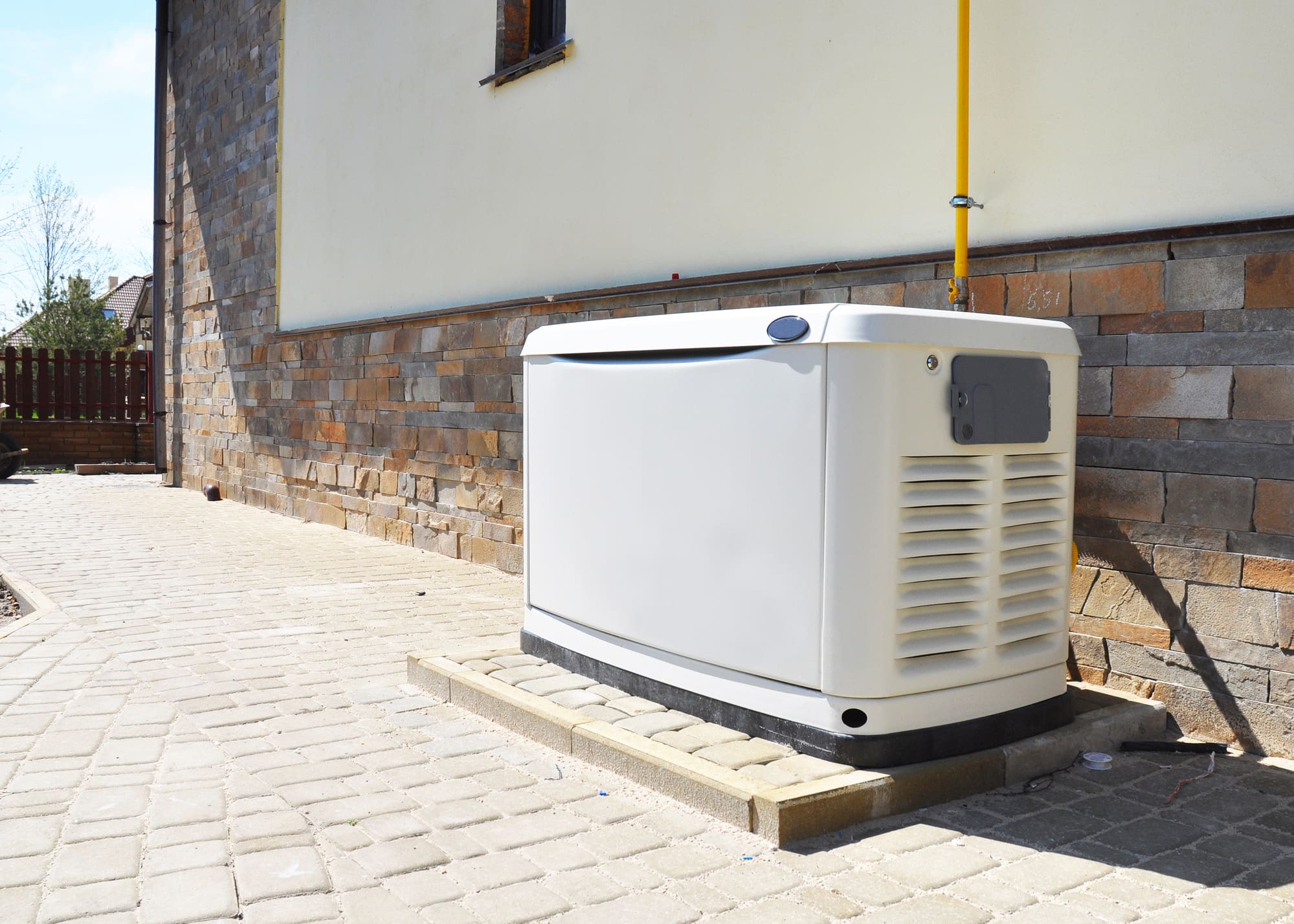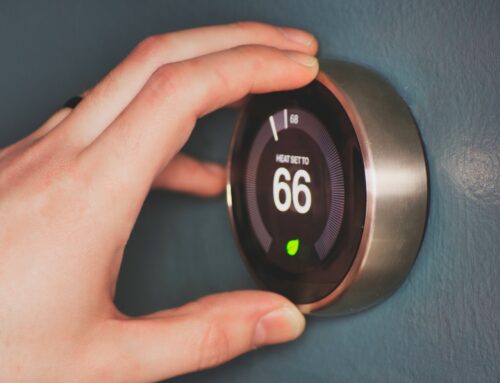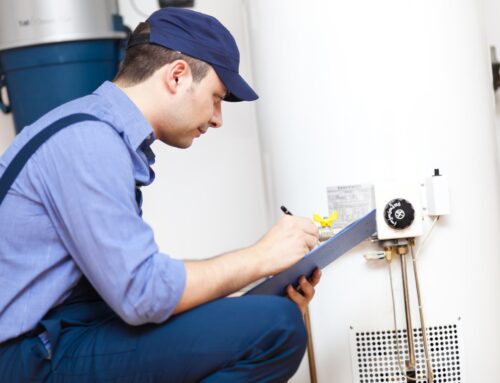In this comprehensive guide, we will explore the importance of having reliable whole house generators, portable generators, standby generators, and solar generators. These generators can provide you with peace of mind during power outages.
A home generator, whether it be portable generators, standby generators, or solar generators, is an essential integrated philosophy in any household. It ensures that you have a continuous supply of power when you need it the most. Get yours from Electric Generators Direct today. Whether it’s keeping your lights on, running essential appliances, or maintaining a comfortable living environment, a dependable home generator is a must-have product. From whole house generators to portable generators, standby generators to solar generators, having a reliable power source is essential for any homeowner.
But why do you need a replacement guide specifically for your portable generators, standby generators, or generac home generator? And why should you buy from electric generators direct? Well, as with any technical product, Generac generators can experience wear and tear over time. This can affect their power output and the amount of electricity they generate. It’s important to regularly maintain and service your generator to ensure it continues to provide the necessary watts for your needs. Understanding the technical performance indicators, testing systems, manual tools required for maintenance, and even the location of power switches and panels becomes crucial for seamless operation of standby generators. Our guide will empower home buyers with the necessary knowledge to run a smooth process, from the initial home consultation to the final purchase.
So let’s dive in and discover everything you need to know about replacing your home generator, whether it’s portable generators, standby generators, or generac. You can find the best options at Electric Generators Direct.
What is a Home Generator?
Types of Fuel Sources
Generac home generators are essential portable devices that provide standby power during electrical outages. These generators have the capacity to deliver the required amp for uninterrupted power supply. Standby generators, portable generators, and generator systems come in various types and sizes, but their primary purpose remains the same: to keep your home running smoothly when the main power supply fails. Electric generators direct.
One of the crucial aspects of home generators is their fuel source, which can include portable generators and standby generators powered by gasoline to provide power. Different types of generators, such as portable generators, use gasoline to power them and generate electricity. These generators come in various amp sizes to suit different power needs. The most common fuel sources for portable home generators include gasoline, propane, natural gas, diesel, and power amp. This guide will help you choose the best fuel source for your portable power amp generator.
Gasoline-powered generators are widely used as a portable standby power source. Their accessibility and affordability make them a popular choice. Standby generators are portable and can easily provide power during an outage. They can be refueled at local gas stations or from containers at home. Additionally, they can be connected to transfer switches to efficiently amp up the power supply. Propane-powered generators offer cleaner energy with lower emissions compared to gasoline generators. These portable generators are perfect for standby power or for use in an RV. Portable generators and standby generators are commonly used in areas where natural gas availability is limited. The home standby generator provides power in these areas.
Portable standby generators with transfer switches are connected directly to the utility’s natural gas line, making them convenient and reliable for long-term power backup solutions. These generators have a high amp capacity, ensuring efficient power supply during emergencies. Diesel-powered generators, including portable models, provide robust performance and high energy output. These amps are suitable for larger homes or commercial buildings, offering the convenience of switches and standby capabilities.
Components and Mechanics
To understand how portable generators and standby generators function, it’s essential to familiarize yourself with their basic components and mechanics. These generators provide power and can be measured in amps. A typical home generator, including portable generators and standby generators, consists of an engine, alternator, fuel system, voltage regulator, control panel, and battery. These generators provide power for various applications such as RVs.
The engine serves as the heart of both standby generators and portable generators; it converts fuel into mechanical energy through combustion, providing power. Additionally, transfer switches are used to seamlessly switch between different power sources. This mechanical energy is then transferred to the portable generator alternator through a series of belts or gears. Standby generators are a reliable source of power for RVs. The portable generator’s alternator converts the mechanical energy into electrical energy by rotating electromagnetic coils within a magnetic field. Standby generators also use this mechanism to generate power. Additionally, during a power outage, it is important to transfer the power from the generator to the desired appliances.
The fuel system of standby generators ensures a constant supply of power to the engine for continuous operation. This is especially important for portable and RV standby generators. The standby generators include tanks, filters, pumps, and carburetors/injectors, making them a reliable power source. Additionally, portable generators are ideal for providing power on-the-go, such as for RVs.
A voltage regulator maintains steady voltage levels for standby generators by adjusting the power output from the alternator according to load demand. This is also applicable for RV and portable generators. The control panel allows you to monitor and control various aspects of the standby generator, such as starting, stopping, and monitoring fuel levels. This is especially useful for portable generators used in RVs to provide power.
Lastly, the battery provides the initial power required to start the standby generator for RVs and transfers it to the generator’s engine. Standby generators usually charge power by their engine during operation, making them a reliable choice for RV owners who need a transfer of power.
Understanding the power components and mechanics of standby generators and RVs will help you make informed decisions.
Pros and Cons of Home Generators
Advantages of Having a Home Generator
Having a standby generator at home offers several advantages that can make a significant difference in your daily life. Standby generators provide power during outages, ensuring that you have a reliable source of electricity. This is especially useful for RV owners who rely on generators to power their vehicles and appliances. One of the most notable benefits of standby generators is the uninterrupted power supply they provide. Standby generators are particularly useful for RV owners. When a power outage occurs, whether due to severe weather or other unforeseen circumstances, having standby generators ensures that you can continue to power essential appliances and devices in your home. These generators are especially useful for RV owners who rely on them for uninterrupted power supply during their travels. This means you won’t have to worry about food spoilage, being left without heating or cooling, or losing access to important communication tools like phones and internet during power outages. With a standby generator, you can ensure that your RV is always powered and ready to go.
Home generators offer peace of mind during emergencies. Standby generators provide a sense of security by ensuring that critical systems like medical equipment or alarm systems remain operational even when the power grid fails. These generators are particularly useful for RV owners who rely on uninterrupted power supply. This is particularly crucial for individuals with medical conditions that require continuous electrical support or those living in areas prone to frequent power outages, especially when using generators in an RV.
Another advantage of home generators is their versatility. Depending on their size and capacity, RV generators can power various appliances simultaneously, including refrigerators, lights, air conditioners, and even larger equipment like sump pumps. This flexibility allows you to maintain comfort and functionality throughout your home during extended periods without electricity, thanks to the power of generators. Whether you’re at home or out on the road in your RV, having a reliable generator ensures that you can still enjoy all the conveniences you’re accustomed to.
Considerations for Home Generator Installation
While there are numerous benefits to having a home generator for power, it’s essential to consider some potential drawbacks of generators before making a decision. One factor to keep in mind is the maintenance requirements associated with owning a power generator. Regular servicing and upkeep are necessary to ensure optimal performance and longevity of power generators. This may involve tasks such as oil changes for generators, filter replacements for generators, battery checks for generators, and periodic load testing for power. When considering the overall cost of owning a generator, it’s important to factor in the maintenance needs for these power generators.
Another consideration when choosing a generator is the power it generates and the noise level it produces. While advancements have been made in reducing noise emissions from newer models, some older generators may produce considerable sound during operation due to their power. If noise pollution from generators is a concern for you or your neighbors, it’s important to select a generator with lower decibel ratings for power or consider installing soundproofing measures.
Weighing the Pros and Cons
When deciding whether to install or replace a home generator, it’s crucial to weigh the pros and cons of generators and their power. Consider your specific needs, budget, and lifestyle when deciding on power generators. Assess the frequency and duration of power outages in your area, and the impact they have on your daily life. Consider investing in generators to mitigate the effects of these outages.
Understanding Your Home’s Power Needs
To ensure that you select the right home generators for your needs, it’s essential to understand your household’s power requirements. By assessing the appliances and systems that require backup power during outages, calculating wattage needs based on individual usage patterns, and considering other factors such as the power grid, electrical wiring, and generators, you can make an informed decision about which generator is best suited for your home.
Assessing Essential Appliances and Systems
Start by identifying the essential appliances, systems, and generators in your home that need backup power during outages. These may include items like refrigerators, freezers, heating and cooling systems, well pumps, sump pumps, security systems, medical equipment, or even home offices with computers and internet connectivity. In situations where there is a power outage, having generators can ensure that these essential appliances and systems continue to function. Make a comprehensive list of power generators to determine their approximate wattages.
Calculating Wattage Needs
Once you have identified the essential appliances and systems that require backup power, it’s time to calculate their wattage needs for generators. Each power appliance or system will have a specific wattage requirement listed on its label or in its user manual. Generators can provide the necessary power for these appliances and systems. Note down the power values for each generator item on your list.
Next, consider how often these generators and power appliances are used simultaneously during typical usage scenarios. For example, if you frequently run multiple appliances at once (such as running the dishwasher while doing laundry), factor in the combined wattage of those items when calculating your total power needs. This is especially important when considering the use of generators.
Considering Other Factors
In addition to assessing essential appliances and calculating their wattage needs, there are a few other factors to consider when choosing a home generator that can provide reliable power.
-
Power outages are a common occurrence in many areas. It is important to consider the frequency of power outages when deciding whether or not to invest in generators. If your power needs are infrequent or short-lived, you may not require a high-capacity generator for generators.
-
Ensure that your home’s electrical wiring can handle the additional load of generators without causing any safety hazards to the power.
-
Home Consultation: Consider consulting with a professional to assess your home’s specific power needs and recommend the appropriate generator size for you.
By considering all of these factors, such as generators and power, you can determine the optimal wattage and capacity for your home generator. Remember that when it comes to power needs, it’s always better to slightly overestimate your generators rather than underestimate them. This will ensure that your power generator can handle unexpected surges in demand without any issues.
Exploring Types of Home Generators
Standby Generators
Standby generators are permanent fixtures that are installed outside your home to provide power. Generators are designed to automatically kick in when there is a power outage, providing a seamless transition of electricity. These power generators are typically connected directly to your home’s electrical system and run on natural gas or propane. Standby generators offer a high level of convenience as they start automatically and can power multiple appliances and systems in your home. However, power generators tend to be more expensive than other types of generators due to their installation requirements.
Portable Generators
Portable generators are powerful and versatile, providing reliable power that can be easily moved around as needed. Generators are machines that run on gasoline or diesel fuel and provide temporary power during emergencies or outdoor activities like camping or construction projects. Portable generators come in various sizes and power capacities, allowing you to choose one that suits your specific needs. They are generally more affordable compared to standby generators but may require manual operation and the use of extension cords for connecting appliances to access power.
Inverter Generators
Inverter generators are a type of portable generator that offer distinct advantages in terms of power. These generators utilize advanced technology to produce clean, stable power suitable for sensitive electronic devices such as laptops, smartphones, and televisions. Inverter generators have the power to operate more quietly compared to traditional portable models, making them ideal for recreational activities where noise levels need to be minimized. These power generators are known for their fuel efficiency, running at variable speeds based on the required load.
When choosing the right type of generators for your home, it is essential to consider several factors, including power.
-
Power Needs: Assess the wattage requirements of the appliances and systems you want to power during an outage, and consider using generators.
-
Budget: Determine how much you are willing to spend on generators while considering long-term costs such as maintenance and fuel power.
-
Installation Preferences: Decide whether you prefer a permanent installation (standby generators) or the flexibility of portability (portable or inverter generators) for power.
-
Convenience: Consider the level of convenience you desire, such as automatic startup and the ability to power multiple appliances simultaneously with generators.
Cost and Budget Considerations
Several factors can influence the cost. It’s important to evaluate these power factors and determine your budget range based on available generator options in terms of size, brand, and features. Let’s delve into some key considerations.
Evaluate Various Factors Influencing the Cost
The cost of home generators can vary depending on several factors related to power. One significant factor in choosing a generator is the size or capacity of the power generators. Larger generators with higher power output capabilities tend to be more expensive than smaller ones. The reputation of power generators brands can also impact the cost, as well-known brands often come with a higher price tag due to their reliability and quality.
Another factor that influences the cost of generators is the type of fuel used to power them. Generators powered by natural gas or propane may require additional installation costs for gas lines or tanks, whereas diesel-powered generators may have higher maintenance expenses over time.
Determine Your Budget Range
Once you’ve evaluated the various factors influencing the cost of generators, it’s essential to determine your budget range for a new power generator. Consider how much power you are willing to invest in generators while keeping in mind your specific needs and requirements.
When setting your budget parameters, it is important to consider both the upfront costs and long-term savings potential of power generators. While a lower-priced generator may seem appealing initially, it’s crucial to consider its efficiency and longevity when it comes to power generation. Investing in a slightly more expensive but reliable generator can save you money in future power repairs or replacements.
Long-Term Savings Potential vs Upfront Investment
When deciding on your budget for a home generator replacement, it’s important to weigh the long-term savings potential of generators against upfront investment costs for power. While high-quality generators might have a higher initial price tag, they often offer greater power, energy efficiency, and durability.
Consider how frequently power outages occur in your area and calculate potential losses from spoiled food or disrupted work. In such situations, having generators can be a lifesaver. A reliable generator with automatic transfer switch capabilities can minimize the impact of power outages and help you save money in the long run. Generators with automatic transfer switch capabilities are essential for minimizing the impact of power outages and saving money in the long run.
In contrast, opting for a cheaper generator might result in lower energy efficiency, higher maintenance costs, frequent breakdowns, or insufficient power. When deciding on power generators, it’s crucial to find a balance between your budget and the long-term savings potential.
Installation and Safety Best Practices
To ensure the safe operation of your home generators and maintain a steady power supply, it is essential to follow the recommended installation guidelines. This will not only protect you, your family, and your home power but also prevent any potential hazards that may arise during the use of generators. Here are some best practices to keep in mind:
Familiarize yourself with recommended installation guidelines for safe operation.
Before installing your home generator, take the time to thoroughly read and understand the manufacturer’s installation instructions for generators. These power guidelines are designed to ensure proper setup and usage of generators, minimizing any risks or complications that may occur. By familiarizing yourself with these recommendations for power generators, you can confidently proceed with the installation process.
Maintain proper ventilation to prevent carbon monoxide buildup during generator use.
One crucial aspect of generator safety is ensuring adequate ventilation for power generators. Generators have the power to produce carbon monoxide gas, which can be extremely dangerous if not properly ventilated. It is crucial to position the power generator in an open area, away from doors, windows, or any other openings that could allow fumes from the generators to enter your living space. Consider installing carbon monoxide detectors near sleeping areas to ensure safety when using generators and power.
Follow electrical code regulations while connecting the unit to your house’s electrical system.
When connecting your home generator to your house’s electrical system, it is crucial to adhere to all applicable electrical code regulations for generators and power. This ensures that the wiring for generators is done correctly and safely, preventing any potential electrical hazards such as short circuits or overloads, and ensuring a reliable power supply. If you are unsure about how to connect the power generator properly, it is always recommended to hire a qualified electrician who can handle this task efficiently.
By following these installation best practices and safety guidelines, you can enjoy peace of mind knowing that your home generators are installed correctly and pose minimal risk to power. Remember that safety should always be a top priority when dealing with electricity and power sources.
Maintenance for Longevity and Efficiency
Regular maintenance is crucial to ensure the longevity, efficient performance, and power of your home generator. By following routine maintenance tasks, you can keep your power generator in optimal condition and avoid unexpected power breakdowns. Let’s explore some essential maintenance practices that will help you get the most power out of your home generator.
Routine Maintenance Tasks
To keep the power of your home generator running smoothly, it’s important to perform regular oil changes, filter replacements, and battery checks. Oil changes are necessary to maintain proper lubrication and prevent wear and tear, ensuring the power of the engine. Over time, oil can lose its viscosity and become contaminated, reducing its power in protecting the engine components. Following the manufacturer’s guidelines on when to change the oil will help ensure that your generator operates efficiently and maintains its power.
In addition to oil changes, replacing air filters is another vital maintenance task that helps maintain the power of your vehicle. Air filters have the power to prevent dust, debris, and other contaminants from entering the engine, which can cause damage or reduce performance. Regularly inspecting and cleaning or replacing air filters will help maintain optimal airflow and combustion efficiency, ensuring the power of the system is not compromised.
The battery is an essential component of your home generator as it provides power for starting the unit during an outage. Regularly checking the power of the battery’s charge level and ensuring that it is clean and free from corrosion are essential steps in maintaining its reliability. It’s also a good idea to periodically test the battery power to ensure it effectively holds a charge.
Manufacturer Guidelines
Following the manufacturer’s guidelines for maintenance is crucial for maximizing the lifespan and power of your home generator. Each power model may have specific requirements regarding power maintenance intervals or recommended power replacement parts. By adhering to these guidelines, you can ensure that your generator remains reliable and powerful throughout its lifespan.
Manufacturers often provide detailed instructions on how to perform routine maintenance tasks like power changes or filter replacements to ensure optimal performance. It is important to carefully follow these instructions to avoid any potential damage or voiding of warranties. The power of adhering to these guidelines cannot be underestimated.
Storage Considerations
If you live in an area where extreme weather conditions or power outages are common, you may need to store your generator for extended periods. Proper storage is essential to maintain the longevity and power of your generator and ensure it starts up easily when needed.
Before storing your power generator, it’s important to run it for a few minutes under load to stabilize the internal components and burn off any remaining fuel in the carburetor. This will help prevent clogs or damage caused by stale fuel and ensure the power of your equipment.
Make sure to store your power generator in a clean and dry location, protected from moisture and dust.
Home Generator Features and Fuel Options
Additional Features for Enhanced Performance
When considering a replacement for your home generator, it’s important to explore additional features that can enhance its power and performance. One such feature is an automatic transfer switch, which allows the generator to seamlessly switch on when a power outage occurs. This eliminates the need for manual intervention and ensures uninterrupted power supply to your home.
Remote monitoring is another useful feature to consider. With remote monitoring capabilities, you can conveniently check the power status of your generator from anywhere using a smartphone or computer. This allows you to keep track of fuel levels, battery health, and any potential power issues that may arise.
Noise reduction technology is yet another feature worth exploring. Generators equipped with power and noise reduction technology operate at lower decibel levels compared to traditional models. This can be particularly beneficial if you live in close proximity to neighbors or have power noise restrictions in your area.
Evaluating Different Fuel Options
There are several power choices available: natural gas power, propane power, and diesel power. Each power option has its own advantages and considerations that should be evaluated based on availability and convenience.
Natural gas is a popular choice for power due to its widespread availability through utility lines. The generator taps directly into the natural gas supply, eliminating the need for refueling and providing reliable power. Natural gas has the power to burn cleaner than other fuel types, reducing emissions and environmental impact.
Propane offers versatility and power as it can be stored in tanks on-site. This makes it an ideal choice for areas where power and natural gas lines are not readily accessible. Propane is a powerful fuel option that also has a long shelf life and does not degrade over time like gasoline or diesel fuel.
Diesel generators are known for their durability and longevity. They are often used in commercial settings or areas prone to frequent power outages. Diesel fuel is widely available and provides excellent power and efficiency for larger capacity generators.
Considering Cost, Environmental Impact, and Ease of Use
When evaluating different fuel options, it is important to consider the power cost implications, environmental impact, and ease of use.
Natural gas tends to be more cost-effective compared to propane or diesel when it comes to power. However, the power of this product may vary depending on regional pricing and availability. Propane can be a cost-effective option if you have the means to store it on-site. Diesel generators typically have higher upfront costs but can provide long-term savings due to their fuel efficiency.
In terms of environmental impact, natural gas and propane are cleaner-burning fuels compared to diesel. They produce fewer emissions and contribute less to air pollution.
Choosing the Right Home Generator
To make an informed decision when choosing a home generator, it is crucial to consider several factors discussed throughout this guide. By taking these factors into account, you can ensure that you select the most suitable generator for your needs.
Determine the Appropriate Generator Size
One of the essential considerations in choosing a home generator is determining the appropriate size based on your power needs and available budget. Assessing your power requirements will help you determine how much wattage capacity your generator should have. Consider all the appliances and systems in your home that you would like to power during an outage, such as refrigerators, heating or cooling systems, lights, and electronics.
Once you have a clear understanding of your power needs, it’s important to match them with an appropriately sized generator. Generators are available in various sizes, ranging from portable models to larger standby generators. Portable generators offer flexibility but may not provide enough power for extensive use. Standby generators, on the other hand, are permanently installed outside your home and can automatically kick in during a power outage.
Select a Reliable Brand with Positive Customer Reviews
When investing in a home standby generator, it is crucial to choose a reliable brand with positive customer reviews. Look for reputable brands known for their quality and durability. One such brand is Generac, which has established itself as a leader in the industry.
By selecting a reliable brand like Generac, you can have confidence in the performance and longevity of your home generator. Reading customer reviews can also provide valuable insights into real-life experiences with different models and brands.
Choosing a reliable brand ensures that you receive excellent customer support and access to replacement parts if needed. It also increases the chances of long-term satisfaction with your purchase.
Partner With A Local Generator Installer
We hope that this comprehensive resource has provided you with valuable insights and information to make an informed decision when choosing a home generator.
By understanding what a home generator is, exploring the pros and cons, considering your power needs, and delving into the various types, costs, installation, maintenance, features, and fuel options, you are now equipped with the knowledge to select the right generator for your home. Remember to prioritize safety and consult professionals when necessary.
Now it’s time to take action! Assess your specific requirements, evaluate your budget, and determine the best fit for your home. Don’t hesitate to reach out to trusted suppliers or experts in the field for further guidance. With a reliable home generator in place, you’ll have peace of mind knowing that you’re prepared for unexpected power outages and can continue to enjoy a comfortable and functioning household.
Contact Us For Generator Installation In Sonoma County
Frequently Asked Questions
How often should I replace my home generator?
It is recommended to replace your home generator every 10 to 15 years. Regular maintenance can extend its lifespan, but as generators age, their efficiency and reliability may decrease, making replacement necessary for optimal performance.
What factors should I consider when choosing a new home generator?
When selecting a new home generator, consider factors such as the power capacity needed to support your essential appliances, the fuel type (gasoline, propane, or diesel), noise level, portability options, and any additional features that align with your specific requirements.
Can I install a new home generator myself?
Unless you have experience and knowledge in electrical work and generator installation, it is best to hire a professional electrician or generator installer. They will ensure proper placement, wiring connections, and adherence to local building codes for safe and efficient operation.
How much does it cost to replace a home generator?
The cost of replacing a home generator varies depending on several factors like the size of the unit, fuel type, installation requirements, and any additional features. On average, homeowners can expect to spend between $3,000 and $10,000 for a new home generator system.
Are there any government incentives or rebates available for purchasing a new home generator?
In some cases, there may be government incentives or rebates available for purchasing certain types of energy-efficient generators. It is advisable to check with local energy authorities or consult an electrician who can provide information on potential incentives in your area.





